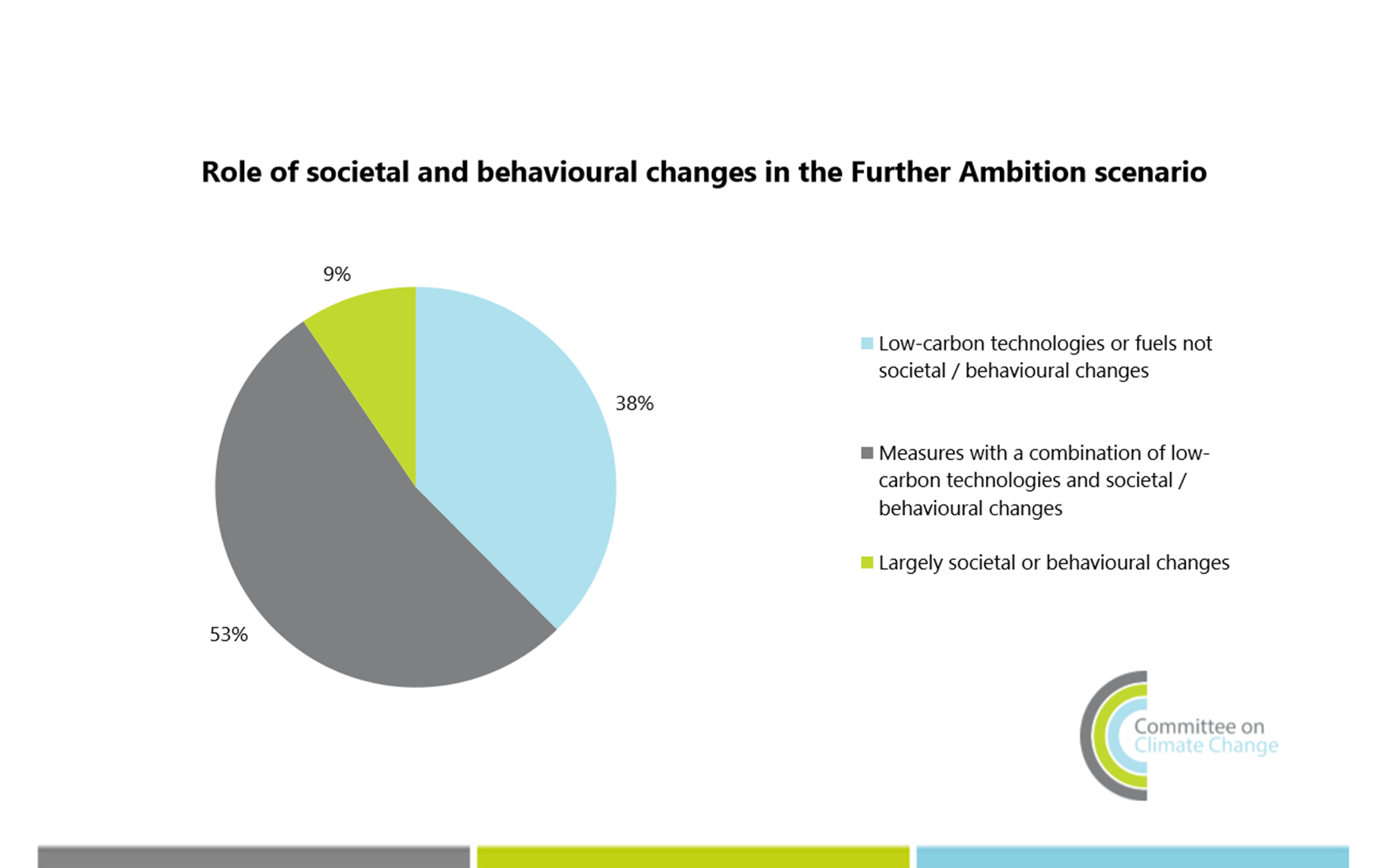Our News
The Impact of Behaviour Change

The Carbon Literacy Project is first and foremost a large-scale behaviour change project, working at the micro-level of individual businesses, schools, communities, etc., to drive a mass societal shift which is both top-down and bottom-up, ensuring that all elements of society are brought along and included in the discourse around our transition to a zero-carbon world.
We know that the actions of individuals can make a huge impact, whether that be in their personal life, or by implementing policy and working practice through their job role that reduces not only their carbon footprint but potentially that of other employees, a product, a business, or an entire industry! But did you know that the action of individuals is actually a crucial factor in our journey to a zero-carbon society?
Brought to our attention by one of our CL trainers, the Committee on Climate Change (CCC) presented their findings on ‘The role of energy in meeting the UK’s net-zero greenhouse gas targets,’ showing that societal and behaviour changes are required in 62% of actions put forward (image above), through either ‘measures with a combination of low carbon technologies and societal/behavioural changes,’ or where the actions are ‘largely societal or behavioural changes’. This is compared to just 38% of actions which involved ‘low-carbon technologies or fuels’ alone.
What this really shows is the need for all members of society to understand the climate crisis and the role they play within it. It is no use simply putting technology in place and expecting individuals to understand the why’s or the how’s behind it – Why we need it? How it works? How it’s applicable to them? This is where education is required to ensure that the many co-benefits of taking action on climate change (as well as the risks of inaction) are widely understood.
However, understanding alone will not be enough to bring about the radical societal changes required over the next 10 years, as the 9% of measures which are ‘largely societal or behavioural changes’ show; individuals must also have the ability (tools, skills, resources) and motivation to take action in the parts of their lives that technological advancement won’t touch. This is where Carbon Literacy comes in, and differs from purely educational projects, creating transformative action by providing learners with just that (ability and motivation). The foci – on relevance (the training designed to the learner’s needs), positivity, and directly implementable action planning – combine to create learning that is both immediately applicable and supported; that is driven by the individual, rather than forced onto them, embedding the behaviour change in a way that’s sustainable, leading to shifts in the consciousness and behaviour of society as a whole.
If you’d like to find out more about how Carbon Literacy can help your organisation to maximise it’s carbon reduction efforts by helping your people to become the biggest champions for the changes you’re trying to implement, get in touch.